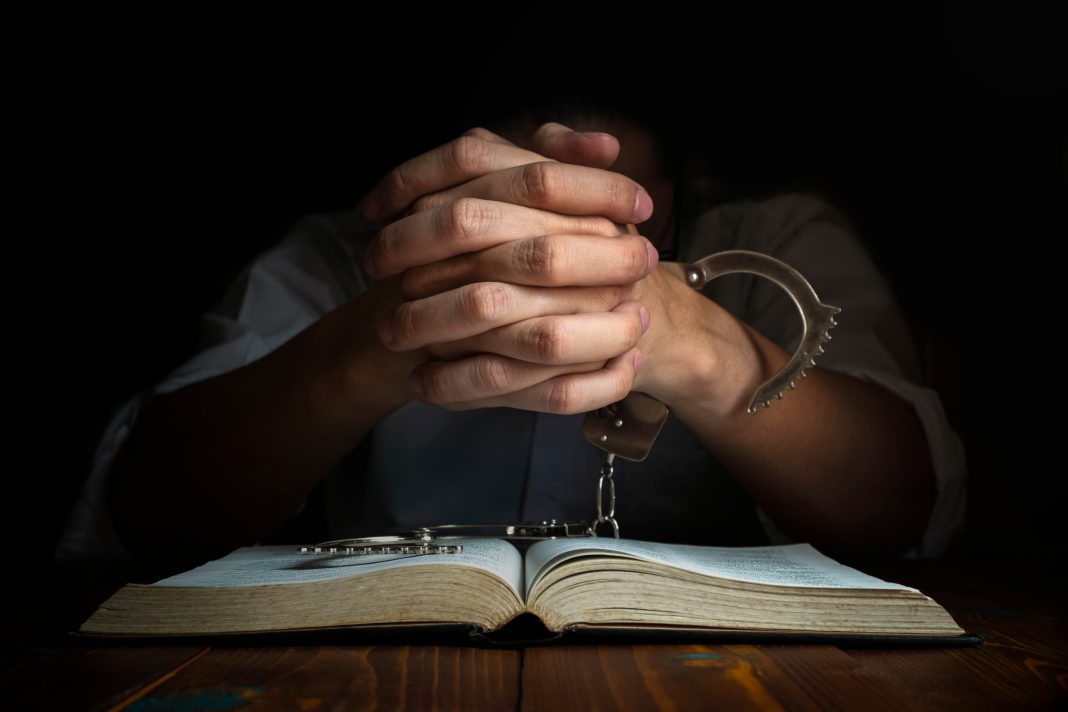Sung Joon Jang and Byron R. Johnson discuss the influence of religion on offender rehabilitation and how it promotes prisoner well-being
Though most crimes can be classified as both a legal and moral offense, thinking about offender rehabilitation through the lens of moral reform has generally been overlooked by scholars. We find that religion contributes to moral rehabilitation among prisoners by promoting their well-being and helping them flourish as humans.
In the U.S., recidivism among previously incarcerated individuals remains high, as about two-thirds of state prisoners released are rearrested for a new crime within three years. In a time of ever-tightening correctional budgets, volunteer-led and externally funded faith-based programs are becoming one of the key and widely available resources for promoting offender rehabilitation in correctional settings.
Conceptions of offender rehabilitation
Offender rehabilitation is generally meant to address a number of important needs of prisoners. Psychological or personal rehabilitation seeks to promote positive individual-level change in a prisoner by developing new skills or abilities as well as addressing deficits or problems. On the other hand, legal or judicial rehabilitation and social rehabilitation target legislative and sociocultural changes to set aside a criminal record for de-stigmatization and to encourage society to accept presumably reformed ex-offenders in order for them to experience a fully restored social position in local communities.
Though largely neglected for decades, the original purpose of the American penal system was one embracing the goal of moral rehabilitation, focusing on improving the prisoner’s moral capacities not simply to reduce reoffending but also to enhance the prisoner’s well-being. In recent years, the emerging human flourishing literature has come to define well-being as a positive state in a person’s key life domains, including mental and physical health, meaning and purpose, and character and virtue.
Rehabilitation as moral reform
In this article, we define rehabilitation as moral reform with the term “moral” broadly referring to the matters of rightness, goodness, worthiness, and justice – which are believed to exist apart from our self-interest or expediency. Since these matters are self-transcendent, religion becomes a potential source of moral reform.
Self-identity
Our definition of rehabilitation as moral reform assumes that prisoners as humans are moral beings in that they are moral agents, although they failed to demonstrate moral firmness in response to criminogenic pressures. This failure, especially when repeated, is likely to have led the individual to adopt a criminal self-identity with a victim mentality rather than owning moral responsibility. We find religion is well-positioned to offer prisoners an opportunity for identity transformation that is characterized by replacing an “old self” with a “new self,” helping them write a “redemptive script” that allows a new start built on this new self. To this end, identity transformation involves both cognitive and affective processes.
Existential belief
As moral beings, prisoners also understand what is worthy or significant because they are existential beings with an innate need for a meaningful life, which largely derives from having a purpose. A life of crime, particularly common-law crime, is hard to justify as meaningful. Thus, prisoners tend to lack existential belief in meaning and purpose in life, which contributes to reoffending after release. While religion is not the only source of the “true” (i.e., self-transcendent) meaning of life, correctional institutions can provide the opportunity for a time-honored system of meaning to the incarcerated.
Character
To the extent that crime is a result of limited moral capacities, moral rehabilitation needs to build character and developing virtues among prisoners. Since most religious traditions promote virtues like self-control, prisoner involvement in religion is expected to increase virtues.
Consequences of rehabilitation
Moral rehabilitation – conceptualized in terms of self-identity, existential belief, and character – is likely to have affective and behavioral outcomes. Thus, faith-based moral rehabilitation is likely to reduce negative emotions and deviant behaviors among prisoners.
An empirical study on moral rehabilitation
To empirically examine whether religion contributes to moral rehabilitation, we conducted a quasi-experiment on a faith-based program that operated in two correctional facilities in Texas ( Jang & Johnson, 2022). While the program— sponsored by a non-profit organization, “Restoration Outreach of Dallas (ROD) Ministries”—consists of four in-prison Bible study classes and aftercare, we focused on the first class, comparing prisoners who completed the class (graduates) and those who did not complete (incompletes).
Data were collected by self-administered survey conducted between July 2019 and March 2020. A sample of 231 inmates participated in the pretest survey, and 132 (57.1%) of them graduated. Nearly half of the sample (109, 47.2%, 81 graduates and 28 incompletes) did the posttest. The key concepts were measured by multi-item scales, and structural equation modeling was applied to analyze the data (Jang & Johnson, 2022).
Key findings on prisoner involvement in religion
First, we found program completion increased prisoner involvement in religion between the pre-test and post-test. Next, increased religiosity contributed to the prisoner’s identity transformation (cognitive and emotional transformations and motivation for self-change), existential belief (perceived presence of meaning and purpose in life), and character by fostering virtues (self-control, compassion, gratitude, accountability, and forgiveness). Finally, religion-based moral rehabilitation was found to reduce the prisoner’s negative emotions (state depression and anxiety) and the risk of engaging in aggression toward other prisoners.
Conclusion and implication for offender rehabilitation
These findings indicate religion contributes to offender rehabilitation as moral reform among prisoners by promoting well-being and helping them flourish. Additionally, correctional policymakers and prison administrators should consider religious programs as effective alternatives to traditional programs. Moreover, it would seem to be important to protect a prisoner’s constitutional right to practice religion in support of helping offenders achieve reform and flourish as citizens returning to society.
Reference
1. Jang, S. J., & Johnson, B. R. (2022). Religion and rehabilitation as moral reform: Conceptualization and preliminary evidence. American Journal of Criminal Justice. 10.1007/s12103-022-09707-3

This work is licensed under Creative Commons Attribution-NonCommercial-NoDerivatives 4.0 International.


